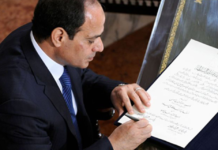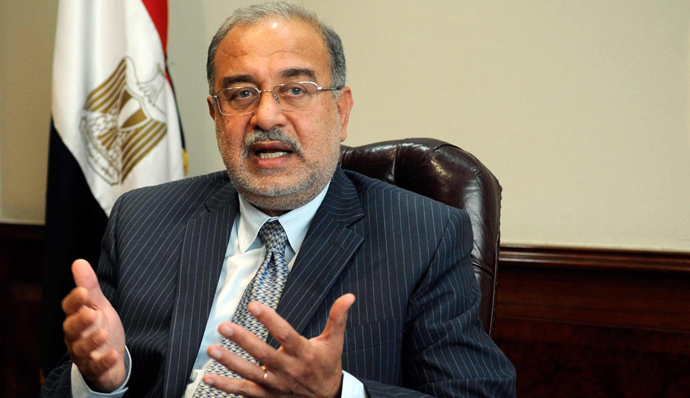“Success”, what a word to think about! Many people may wonder how can success be attained? Is it hard work? Dedication and persistence? or perseverance? Well according to Colin Powell, a retired four-star general in the United States Army, success is the result of perfection, hard work, learning from failure loyalty and persistence.
There is no doubt that youth need role models to look up to; they also need to be exposed to various expertise who were able to draw outstanding success stories.
Based on our commitment to present to our young readers what is beneficial, MEO was delighted to “chit chat” with one of the successful Egyptian figures in his field with 6 academic degrees, Dr. Mahmoud Salama MBBCh, MSc, MD, PhD, EMD, MA, a 38 year-old Assistant Professor and Consultant of Obstetrics & Gynecology (OBGYN), Cologne University, Germany to give his significant background experience, which carries meaningful advice for younger generations in Egypt.
Background:
Dr. Mahmoud Salama success story comes along as an inspiring story to many Egyptian youth; through which several significant recipes for success can be derived; he graduated from Kasr Alaini Medical Faculty, Cairo University early in 2001with Bachelor degree of Human Medicine and Surgery (MBBCh). Later in Egypt, Dr. Salama obtained also Master of Science degree (MSc) and Medical Doctorate degree (MD) in Obstetrics & Gynecology from Cairo University, in addition to Executive Management Diploma (EMD) from American University in Cairo (AUC). Abroad, he received his Doctor of Philosophy degree (PhD) in Obstetrics & Gynecology in 2012 from Medical University of Innsbruck, in Austria; and his Master degree in Business (MA) in 2014 from Management Centre Innsbruck (MCI), Austria. Currently he is conducting his Professorship at the Cologne University in Germany in the field of fertility preservation of female patients with cancer (Oncofertility).
Dr. Salama started to travel abroad in 2005 looking for more chances and overcoming new undiscovered challenges outside the borders of his own country. He actually chose to leave his comfort zone in Egypt, where he was already a successful doctor and travelled the world aiming for more self-fulfilment and a high sense of accomplishment.
Can you tell us more about your work experience abroad? What are the main challenges you faced?
Well I have to say that prior to travelling abroad, I had many expectations, some of them were met, while others weren’t. Travelling is beneficial, yet very challenging. It widens the scope of any person; however I would say, if someone decides to travel abroad to work or to study, he or she must keep in mind that it would be a real test for his or her level of responsibility, commitment and self discipline. Working or studying in Europe makes you depend on yourself completely. You are supposed to draw your path depending on your skills, tolerance and capabilities for learning and grasping. You completely depend on yourself, from A to Z, starting from the small details in your life until your major tasks.
Furthermore, the social and family support that one’s receive in his or her home country, is absent abroad, which is something difficult as well. Another crucial point, I would like to talk about is “legal barriers”. Any foreigner working in a European country is faced with an endless number of legal procedures that can make living or working a difficult process. This got even more severe with the recent unstable global circumstances and the widespread of terrorism.
Many people may tend to constantly compare between education in Egypt and European countries, how do you see this comparison?
I would say that it would be unfair to make such comparison between Egypt and Europe in education and research. Egypt is still a developing country, however it has some reputable academic institutions that deliver good education for example in medicine; Kasr Alaini Medical Faculty, Cairo University. For that reason, we succeeded to establish several international exchange programmes, related to the field of medicine between Egypt and other European countries. “EAIMS”, The Egyptian Association for International Medical Studies, is a perfect example for that. EAIMS is an Official, Medical, Independent, Non-Profit, Non-Governmental & Non-Political Organisation founded in June 2003 in cooperation with the Medical Education Development Centre (MEDC), Kasr Alaini Medical Faculty, Cairo University, Egypt. I had the opportunity to be one of EAIMS founders and its general manager till present. It aims to promote the international studies and researches in all fields of medical sciences (Human Medicine – Dentistry – Pharmacy – Physiotherapy – Nursing). Such goals and objectives are achieved through a group of bilateral & multilateral exchange cooperation protocols with well-known Partner Organisations on both National and International levels. It is considered as one of the most active specialised medical organisations not only in Egypt but also in Africa and Middle East. That is because EAIMS provides not only the Egyptian but also the international candidates with real opportunities to join variant international medical exchange programmes such as medical electives, clinical clerkships and research projects.
Related to your field of expertise, can you spot achieved progress in Egypt?
I would say that Egypt is progressing. Speaking about the scientific field and the field of medicine, I would say that I can notice a lot of effort has been made since I traveled abroad in 2005. Egypt tries to follow the latest updates in the field of medicine and scientific research. We might be in a need of more specialised research suitable to be conducted here in our country. I would say in many European countries, they give much attention to applied research and we should pay attention to that too in Egypt.
What is your main advice to Egyptian youth?
The most important advice, I would give to Egyptian youth is continuous self development; and self development actually comes from the eagerness to work smart and hard, no matter what are the circumstances. The difference between Egyptian youth and youth in western countries, is that European youth do not get intimated from work, even if the job does not suit their qualifications and educational background; they only focus on attaining their goals, which is to sustain their living and climb the professional and social ladder step by step.
Furthermore, a crucial advantage that many Egyptian youth are underestimating is the support they get from their families. In Egypt, the family may give social, logistic and financial supports to their sons and daughters till their early 30s, which is very different from other western societies, where youth must depend on themselves to make a living at an earlier age. Egyptian youth should regard this as an advantage to work more on building their own lives and career step by step.















